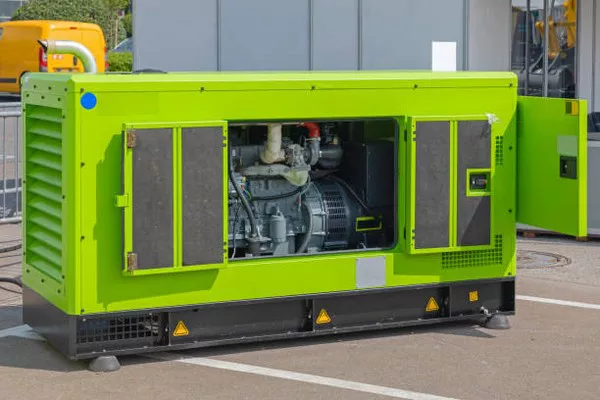Air conditioning is an essential part of life in the United Arab Emirates (UAE), where desert conditions and scorching summer temperatures reaching up to 120°F (49°C) make cooling systems vital. With electricity consumption soaring daily, envisioning a sustainable energy future in the UAE, especially in Dubai, seemed challenging. However, the country has now made a groundbreaking move with the launch of one of the world’s most powerful nuclear power plants, marking a significant step toward a greener future.
Barakah: UAE’s First Fully Operational Nuclear Power Plant
The Barakah nuclear power plant, whose name means “blessing” in Arabic, has become the first fully operational nuclear facility in the UAE. Equipped with four reactors, it is capable of producing up to 40 terawatt hours of electricity annually. Construction of the plant began in 2012, and each reactor was tested individually for safety and reliability before the entire facility went live by 2024.
Nuclear power may seem like a surprising choice for a nation rich in natural gas and oil resources. However, the UAE’s long-term vision is driven by the understanding that fossil fuels will eventually be exhausted. The global energy crisis looms on the horizon for every country, and the UAE aims to secure alternative energy options well in advance.
Barakah to Supply 25% of UAE’s Electricity Needs
The UAE’s electricity consumption is massive—four times that of New Zealand—due to its reliance on air conditioning and the energy demands of its mega-cities like Dubai. The Barakah nuclear plant is expected to supply as much as 25% of the nation’s electricity, providing clean energy for both civic and industrial use.
Getting the UAE’s power grid ready to accommodate nuclear energy was no small feat, requiring extensive infrastructure upgrades. Now fully operational, the plant is already powering major industries, including the Abu Dhabi National Oil Company, Emirates Steel, and Emirates Global Aluminium. This shift strengthens the UAE’s energy security, especially in an unpredictable global energy market.
Overcoming Global Skepticism Toward Nuclear Power
The Fukushima nuclear disaster in Japan in 2011 shook global confidence in nuclear energy due to the risks of explosion and radioactive waste. However, the UAE and other Arab nations continued to push forward with nuclear plans, particularly because they are less vulnerable to natural disasters like earthquakes and tsunamis, which caused Japan’s catastrophe.
The UAE has invested heavily in advanced nuclear technologies, prioritizing safety and efficiency. This commitment to cutting-edge reactor technology ensures that the Barakah plant operates with minimal risk, making nuclear energy a viable and increasingly attractive option.
A New Energy Landscape for the Arab World
The success of the Barakah nuclear power plant has reshaped the energy landscape not only in the UAE but across the Arab world. Saudi Arabia, the world’s largest oil exporter, has also prioritized nuclear energy as part of its future energy strategy. As the era of fossil fuels inevitably winds down, the shift to greener energy solutions is becoming a global imperative.
The UAE’s bold move into nuclear power marks a transformative step towards a more sustainable energy future in the region.

